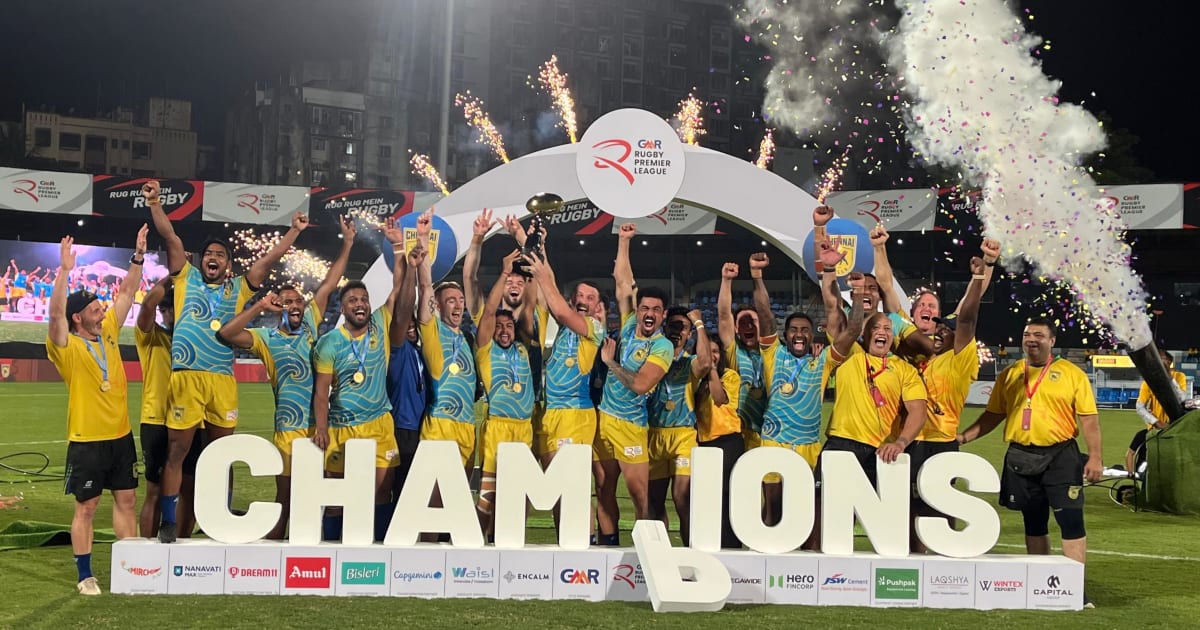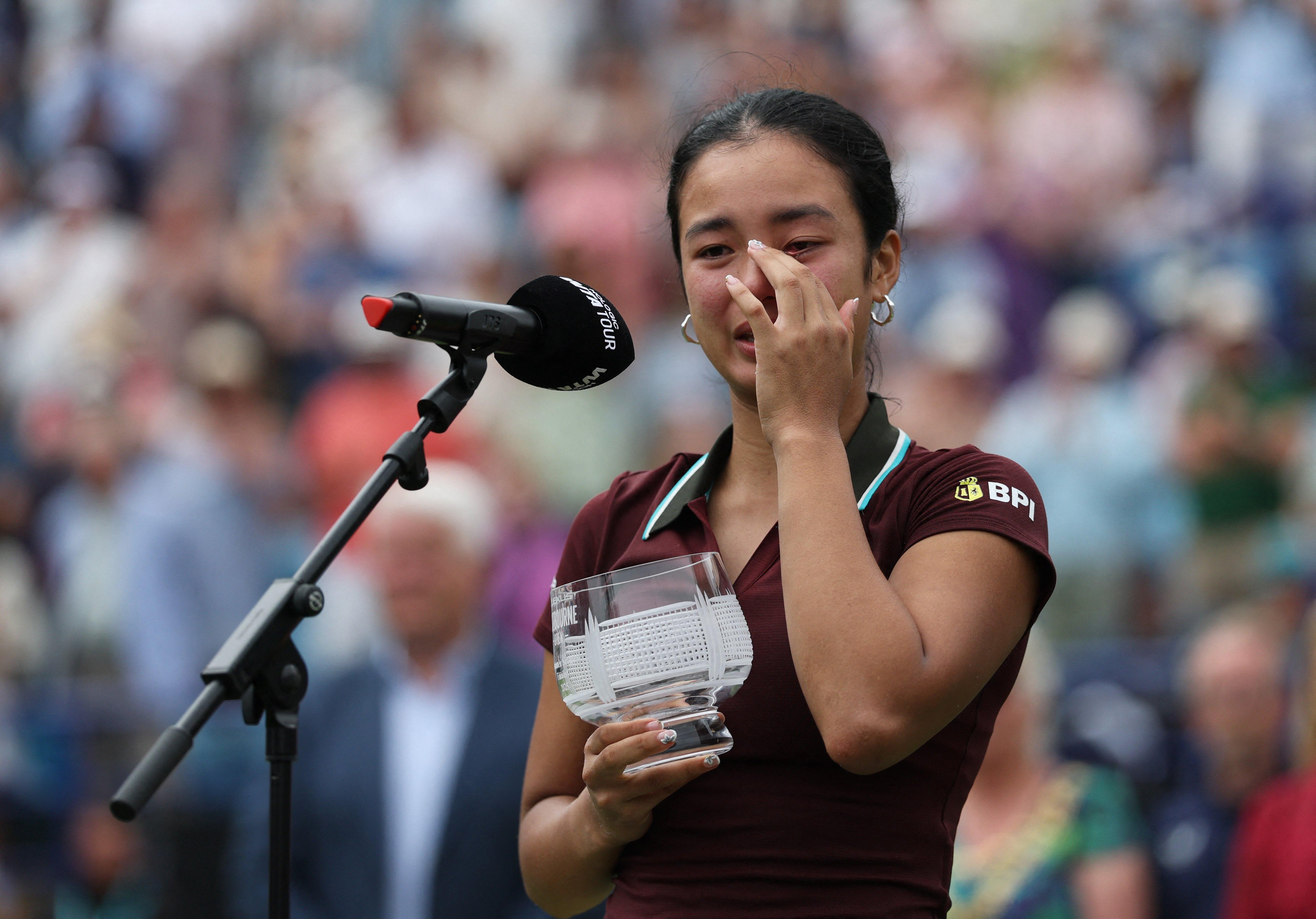Maresca, the ‘joke’ Club World Cup weather delays and an ominous warning for World Cup 2026

It had been a long day. Much, much longer than Enzo Maresca had wanted. Play was suspended for nearly two hours waiting for the weather to pass over Charlotte, but the storm whipped up by the Chelsea coach’s post-match comments threatens to rumble on much longer.“It’s a joke,” he said after Chelsea’s Club World Cup knockout clash with Benfica was held up for 113 minutes, the sixth storm-enforced delay of the tournament and the third hour-plus interruption. And he kept using those words — “a joke” — while making clear he did not see the funny side, despite seeing his team run out 4-1 winners after extra time in a match that kicked off at 4pm local time and did not conclude until 8.38pm.Advertisement“For me, it’s not football,” he said in his post-match news conference. “It’s already seven, eight, nine (in fact six) games that they suspended. I can understand that for security (safety) reasons you are to suspend the game. But if you suspend seven, eight games, that means that probably is not the right place to do this competition.”Maresca was asked whether, by “not the right place”, he meant Charlotte specifically or the U.S. more widely.“No, no, no,” he said, initially appearing to backtrack before standing his ground. “I’m saying that (…) if in this competition they already suspended six, seven, eight games, probably there is something that is not working well. Because in football, it’s not normal to suspend a game.”You will not, at the time of writing, find any of those quotes on FIFA’s or Chelsea’s website or social media channels. It would be an understatement to say it was at odds with the happy, clappy messaging that is preferred in Gianni Infantino’s Club World Cup. The tournament’s official social media feed did not even mention the hold-up in its live updates.The Benfica and Chelsea players leaving the pitch (Justin Setterfield – FIFA/FIFA/Getty Images)Maresca went on, repeating the same point, explaining his frustration that the two teams were left in the dressing room waiting for an update and the way it affected the game.Chelsea led 1-0 when play was suspended in the 86th minute. Upon the restart nearly two hours later, the dynamics of the game had changed dramatically, with Benfica forcing an equaliser that took the tie into extra time.“Guys, please don’t understand me,” Maresca said. “I said it’s a fantastic competition. It’s the Club World Cup, it’s top, we are happy to be in the last eight, happy to win, all these kind of things. But something happens, six, seven games suspended… It’s not normal to suspend a game. In a World Cup, how many games are suspended? Zero, probably. In Europe, how many games? Zero.”AdvertisementIn fact, a knockout game at last summer’s European Championship finals, between Denmark and hosts Germany, was interrupted for 24 minutes due to a storm. There was a longer delay, 58 minutes, at a match between Ukraine and France in Donetsk at Euro 2012. But Maresca is right to point out how extreme the Club World Cup experience in the U.S. is proving; Saturday’s 113-minute hold-up is not even the longest of the tournament, a record held by Benfica’s victory over Auckland City in Orlando last Friday (134 minutes).The match between Palmeiras and Al Ahly at MetLife was also suspended (Nicolò Campo/LightRocket/Getty Images)Storms and stifling heat are accepted as facts of life in an American summer, as is the potential impact on big sports events. But of the “big four” sports leagues, only the MLB stages matches outside at the height of summer — and that is baseball, which is stop-start by nature and where several of the stadiums built in recent years have a retractable roof.There have been cases of storms interrupting football matches played in the U.S., including Major League Soccer games and the Copa America semi-final in Chicago in 2016. What has happened at this Club World Cup, with six games held up, has felt extreme, raising questions not just about the selection of host cities but about the protocol that demands play is suspended for at least 30 minutes beyond the last lightning strike recorded within a 10-mile radius.Because it is the Club World Cup — because it has not captured anything like as much interest as FIFA would have you believe — the interruptions have been relatively easy to shrug off. But it is becoming more of an issue as thoughts turn to next summer’s World Cup, to be played across the U.S., Canada and Mexico.Remember the sense of alarm about weather conditions when FIFA’s executive committee voted to hold the 2022 World Cup in the desert heat of Qatar? The tournament was eventually switched to winter.There has been little or no such alarm around 2026 despite memories of the heatwave that swept the U.S. during the 1994 World Cup. Infamously, temperatures reached 105F (40.6C) during the 1994 game between Mexico and the Republic of Ireland, which kicked off at 12.30pm local time in the humidity of Orlando.AdvertisementIt is interesting looking back at FIFA’s technical evaluations for the bids to host the 2026 World Cup. At no point did the bid inspectors appear to raise the question of the calendar — in North America or in the rival Moroccan bid — even though the finals in Qatar were moved to winter, as will presumably be the 2034 tournament in Saudi Arabia.When it came to the Moroccan bid, FIFA’s inspectors cited the “extreme” heat in inland cities like Marrakesh and Ouarzazate, with temperatures “reaching 37C (98.6F)” in the middle afternoon in July.With the “United” bid from North America, the report says that “10 of the 23 proposed (host) cities have average peak temperatures in the months of June and July that climb above 30C (86F)” and specifically cites the afternoon heat rising to 36C (96.8F) in the Mexican city of Monterrey before a passing mention that “high levels of humidity can be experienced in some of the candidate cities, such as Orlando”. It adds, “Three of the cities with high average temperatures (Atlanta, Dallas and Houston) have proposed stadiums that have temperature control.”Atlanta, Dallas and Houston all made the cut when the host cities for 2026 were being whittled down from 23 to 16. Of the five cities that have faced storm-related interruptions at the Club World Cup, four (Cincinnati, Nashville, Orlando and now Charlotte) were not chosen for next summer. But there was a delay to the match between Palmeiras and Al Ahly at the MetLife Stadium in East Rutherford, New Jersey, which will host next year’s World Cup final as well as the semi-finals and final of the Club World Cup.All of this hints at a more calculated strategy for next year’s World Cup, which after all is a bigger and more prestigious event by far. But if FIFA are to tell us that, after a judicious host venue selection process, it will be a different story next summer, then hold-ups like that in Charlotte on Saturday — and hour-plus delays to earlier matches in Orlando and Cincinnati — make it harder to take the Club World Cup as seriously as Infantino and FIFA keep telling us to.That is what Maresca was livid about. Chelsea had been coasting to a 1-0 win, thanks to a smartly taken free kick from captain Reece James, when referee Slavko Vincic ordered the players to leave the pitch and head to the safety of the dressing rooms due to what FIFA called “severe weather in the area”. Spectators were told to seek cover, with the stands emptying and many fans sheltering in the concourse awaiting further updates.There was no further communication until moments before the players trudged out to warm up again nearly two hours later. Both clubs posted photographs from inside their dressing rooms; Chelsea’s included Marc Cucurella, Moises Caicedo and Kiernan Dewsbury-Hall on exercise bikes and Robert Sanchez doing keep-ups with his fellow goalkeepers. “It was,” James told reporters with a sense of understatement, “quite disruptive.”Maresca said it was worse than that. “Two hours inside,” he said. “People speaking with the family outside, (to let them know) if they were good, the security (safety), people eating, people laughing, talking on the mobile. It’s two hours. That’s why I said it’s not football. You break the tempo.”The funny thing is that, for the small number of supporters who stuck around to watch it, what happened after the hiatus was so much more entertaining than what came before. Benfica returned with a heightened sense of purpose, pushing desperately for an equaliser which came from the penalty spot after Chelsea substitute Malo Gusto was harshly deemed to have handled the ball. Angel Di Maria, desperate to prolong his Benfica career for another half-hour at least, showed no mercy from the spot.AdvertisementExtra time was wild. Benfica had substitute Gianluca Prestianni sent off for a second bookable offence, but even then there were chances at either end before a flurry of Chelsea goals, with substitutes Christopher Nkunku and Dewsbury-Hall scoring either side of a calm finish from Pedro Neto. The scenes when Nkunku scored showed just how emotionally invested Chelsea are in this tournament, with Maresca charging onto the pitch to join the celebrations.And at times like this, you can try to convince yourself that somehow the whole situation added to the entertainment: that, because of the hold-up, the crowd and the television audience were treated to a dramatic finale that would not have happened otherwise.But the fact is that the crowd was disappointingly small in the first place, a mere 25,929 on a Saturday afternoon for a knockout tie in a stadium that holds almost three times that. By the time play resumed, the vast majority of them had given up and gone home. No doubt many of the global television audience had switched off as well.“It’s not football,” Maresca said — despite his satisfaction at this team’s recovery in extra time and excitement about a quarter-final meeting with Palmeiras on Friday.That one, incidentally, is taking place in Philadelphia, where Maresca said last week that soaring temperatures made it “almost impossible” for his players to train the evening before their match against Esperance de Tunis.Some might feel Maresca is complaining unnecessarily, a 45-year-old man shouting at clouds, so to speak. But weather conditions have become the hottest of topics at this Club World Cup. Players, coaches, fans and certainly broadcasters will desperately hope it is different next summer.(Top photo: ANGELA WEISS/AFP via Getty Images)













